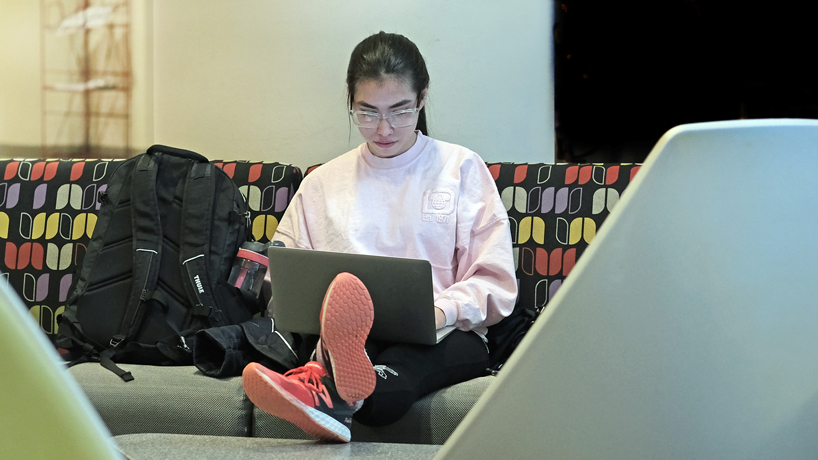
U.S. News & World Report ranked UMSL No. 47 nationally on its 2022 list of Best Online Bachelor’s Programs. (Photo by August Jennewein)
The demand for online education has been on the rise, even before the COVID-19 pandemic, with more and more students drawn to online programs because of their accessibility and flexibility.
The University of Missouri–St. Louis has long been lauded for the quality of its online degree programs. U.S. News & World Report today ranked UMSL second in Missouri and No. 47 nationally out of more than 360 universities in its 2022 list of Best Online Bachelor’s Programs.
“We believe strongly that everyone should have access to a quality college education, and the flexibility of our online programs helps students who might be juggling responsibilities of work and family still have the opportunity to pursue and achieve their educational goals,” Interim Vice Chancellor for Academic Affairs and Provost Steven Berberich said. “We are grateful U.S. News & World Report has again recognized the high quality of our online degree programs and the support we provide the students who take advantage of them. The students are engaged and challenged, and they come away with the knowledge and skills they need for future success.”
UMSL offers 29 of its bachelor’s degree programs 100 percent online – everything from business, chemistry and computer science to nursing, psychology and sociology.
Because of the profile of many students enrolled in online programs – i.e. working professionals in their 20s to 40s with some college credit and looking to advance in or change careers – U.S. News does not include measures only applicable to teenage applicants, such as high school grades or standardized test scores, when comparing schools and building its rankings.
“Instead, U.S. News chose factors that weigh how these programs are being delivered and their effectiveness at awarding affordable degrees in a reasonable amount of time,” U.S. News staff members wrote in a statement explaining the methodology for the rankings.
Each program is assessed based on engagement, including class sizes and retention and graduation rates; services and technologies, including student indebtedness and access to different to technology tools; faculty credentials and training; and expert opinion.














